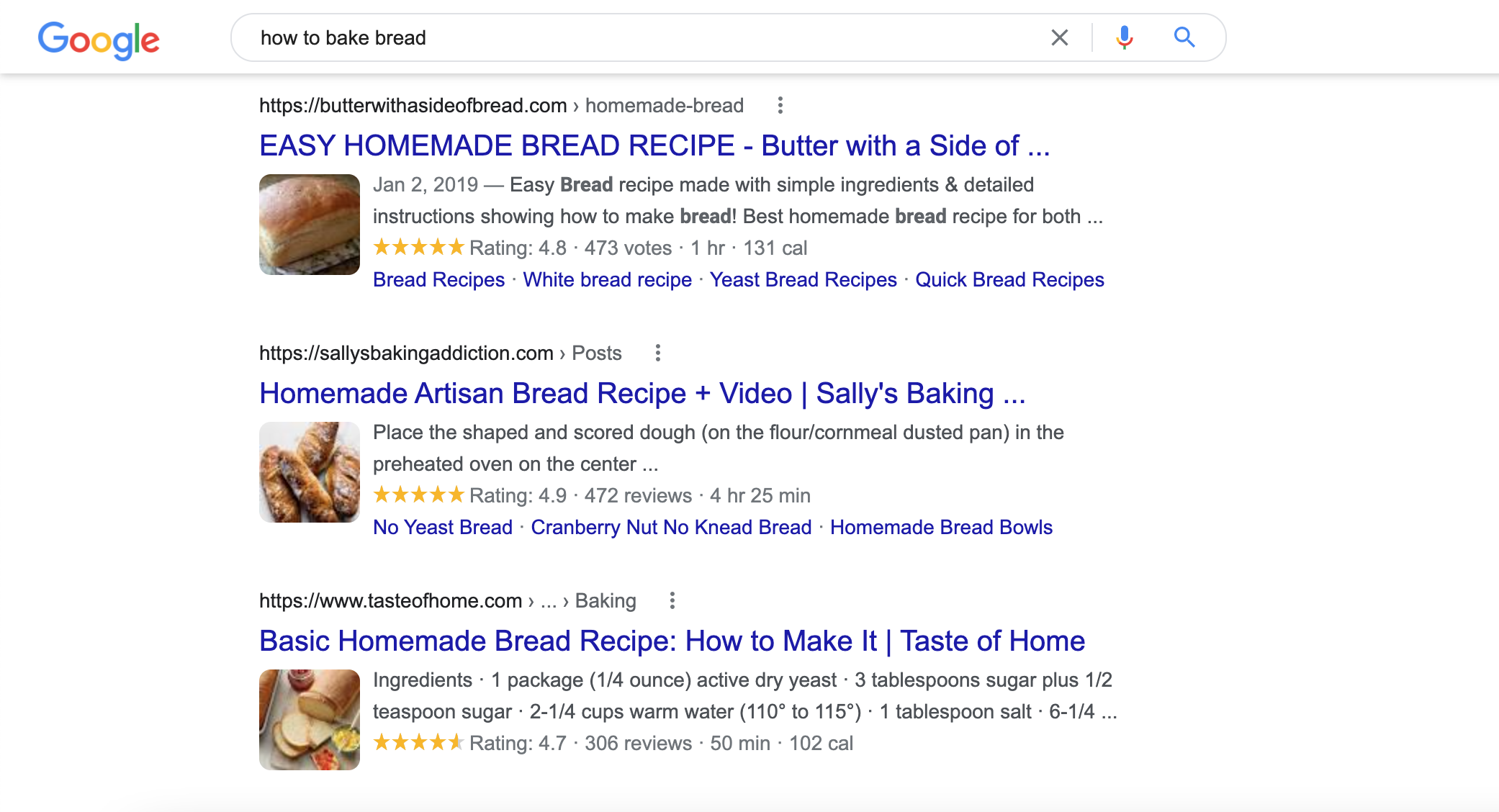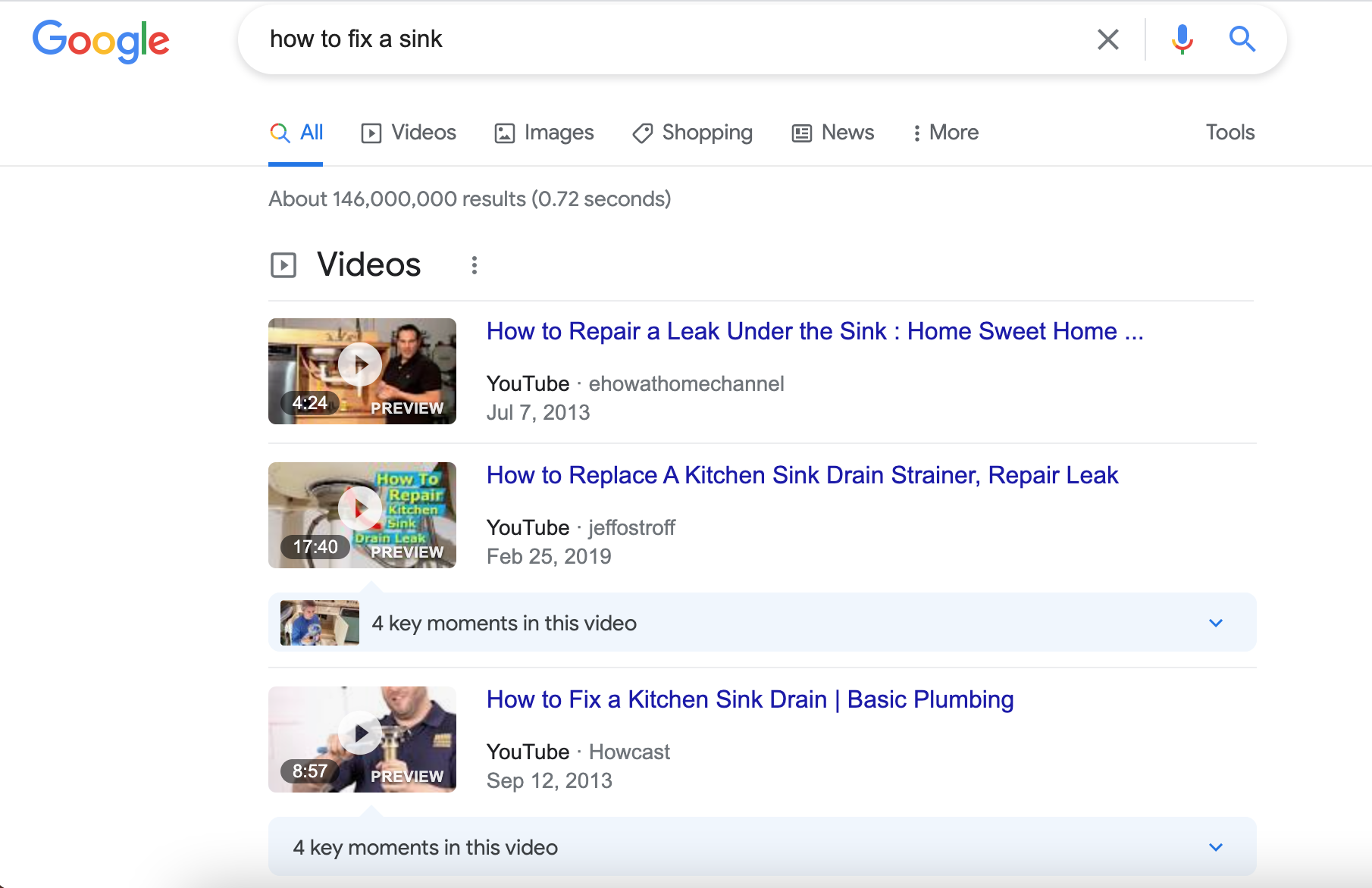Multimedia content enhances the user experience on a website, but does it have any impact on your site’s search engine optimization (SEO)? Google’s algorithm has evolved to take into account many different content formats, including video and image. There are many different tactics you can use to help search engines understand multimedia content. In this article, we explain how to grow your digital presence using images, video, podcasting, and interactive content.
Types of Multimedia Content
There are many different types of content you can produce, depending on your equipment and bandwidth. Here’s an overview of how each medium can be used to boost your SEO strategy.
Images
Images improve the appearance of your website, catch users’ attention, and also add more ranking signals to your content. Google can crawl the image’s file name, title, description, and alt text. Since search engines can’t “see” an image, they use this meta data to understand it.
Some examples of image content that enhance your SEO include:
- Ecommerce product imagery (including color variations)
- Photo galleries – especially helpful for certain types of businesses such as contractors and builders, apartment complexes, senior living communities, or event venues
- Step-by-step illustrations – a great fit for tutorials, DIY projects, recipes, or any other content that requires following a series of steps; your images for this type of content can even show up directly in the SERPs if you implement proper schema
- Infographics – a popular format to present a lot of information at once; utilize this format to give readers an overview of an in-depth topic

Video
Increasingly, we are seeing video content rank in organic search results alongside traditional written content. This is especially true for how-to searches and DIY tutorials.

By creating both a YouTube video and blog post about a certain topic, you can potentially take up double the space on the search engine results pages (SERPs). You can also add a video directly to your website to improve user engagement and session duration, which can indirectly boost SEO.
Video SEO starts with the script. YouTube is capable of auto-generating a transcript, although it can be beneficial to create and upload your own transcript to ensure accuracy. After the video is produced, you’ll also want to write an optimized description and title and include an eye-catching custom thumbnail.
Related Article: Why Your Website Needs Video Content
Podcasts
Podcasts are a growing content medium. 55% of the U.S. population has listened to a podcast and there are approximately 68 million weekly listeners across the country. Podcasting can be a great way to get in front of a large audience, and it doesn’t require the professional equipment necessary for video production.
Google announced in 2019 that it would start indexing podcast results in its search results. Today, Google often highlights specific parts of a podcast episode in search, which indicates it has automatic transcription capabilities similar to YouTube. This means the script and structure of your podcast are important for SEO. Incorporate key phrases and terms and be sure to enunciate as you record to help Google transcribe accurately. Also be sure to choose podcast topics that have SEO value, similar to how you would develop a blog strategy.
Interactive Site Content
Interactive site content encompasses several types of features, including online quizzes, surveys, virtual tours, and interactive calculators. This is the most immersive type of content you can use on your website because it requires active participation from users.
There is ample search demand for this type of content. As a few examples, “depression quiz” receives over 27,000 monthly searches, “car insurance calculator” has about 8,000 monthly searches, and there are nearly 4,500 searches for “virtual college tours” each month. The key is to know your industry and what your competitors are doing, then see where you can create unique content to stand out. On the other hand, if none of your competitors are utilizing interactive content, it can be a great way for you to gain an advantage over them.
Interactive site content is also a great way to earn backlinks from other websites in your industry. You are offering valuable content that has a clear benefit to users. Links to your website remain one of the top ranking factors in Google’s algorithm.
Need help developing content for your website?
View Content Strategy Services
Which Multimedia Content Should I Use?
Any of these types of content can provide SEO benefits if optimized correctly. The type you choose depends on several factors such as your bandwidth, experience, and available equipment.
Equipment
Video production and interactive content are the most involved. Video requires a high-quality camera and microphone and interactive content requires web development. You will need a professional microphone and audio editing software for a podcast, while site imagery can be sourced from stock photo websites (unless you are an ecommerce brand).
Bandwidth
Podcasting and video require the most consistent time investment. You generally need to keep producing content on a regular basis to gain traction and keep your audience engaged. On the other hand, images and interactive content may require a lot of time up-front but they can be used for years before you need to produce new content.
Experience
Perhaps you have a background in professional photography, or one of your employees does freelance video production. Cater to your strengths and unique abilities, or tap into your business network to find the necessary talent.
Audience
Lastly, consider your audience demographics and what will most appeal to them. This may require surveys, focus groups, and other demographic research.
Get Help with Your SEO Strategy
Our SEO experts are well-versed in podcast, video, image, and interactive content optimization. We can help you develop a content strategy that will boost your rankings and earn engaged leads. Reach out to WTM and tell us more about your content needs.
